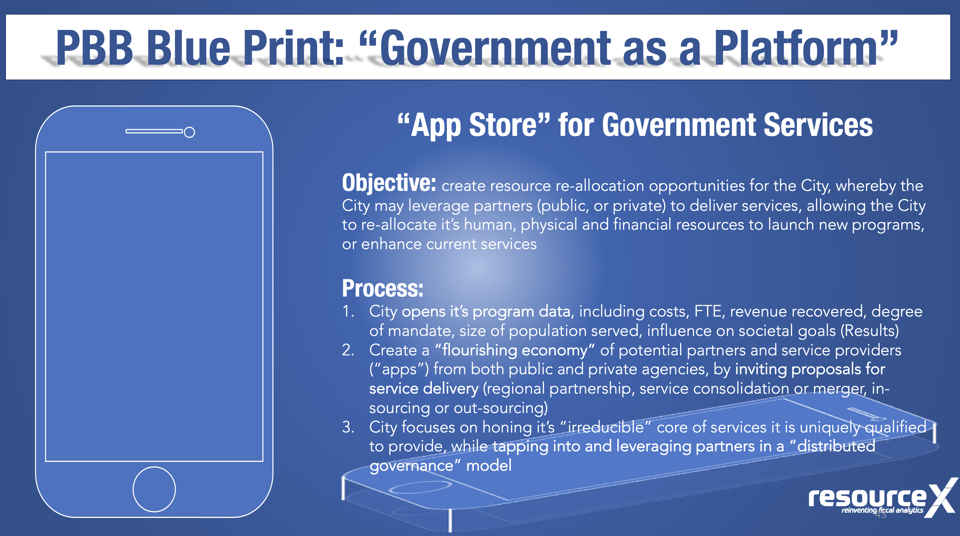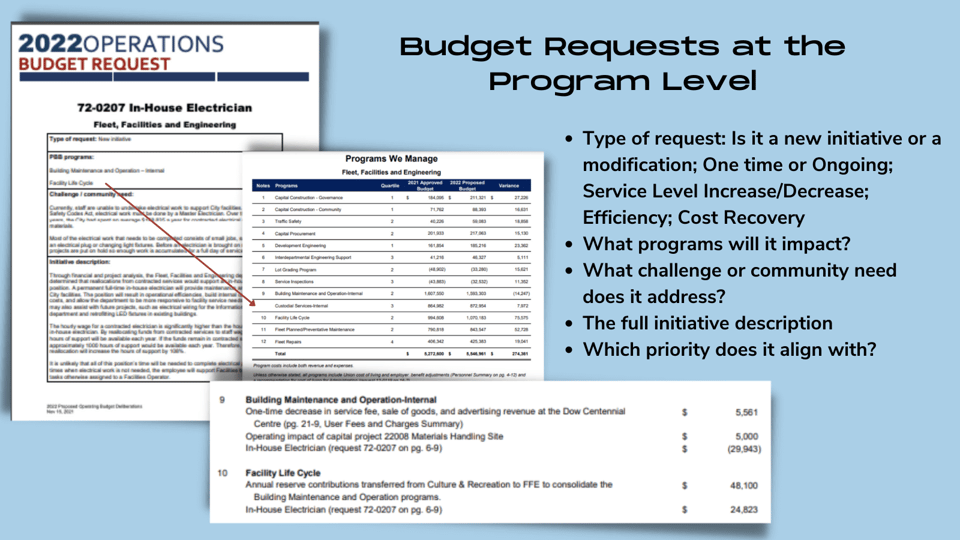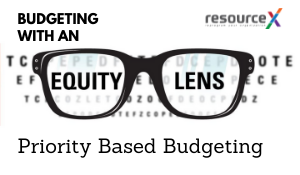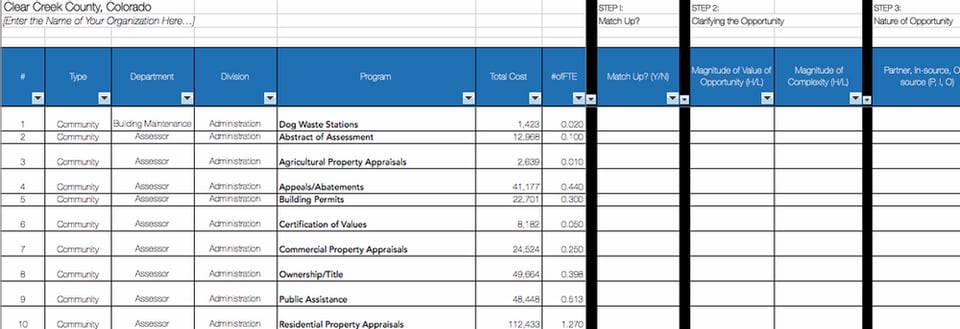"It’s an approach that can advance innovation while offering financial and operational advantages for the typical, day-to-day services that local governments operate."
In a traditional governmental model, the departments of the government are the service provider. Government as a platform is about working with the community to determine the service objectives of government and then “plugging in” the most effective service provider, regardless of whether it is the local government itself, a private, non-profit, or another public organization, or if it is an activity performed directly by the citizens themselves. This model is like the ubiquitous smart phone. A company like Google or Apple provides the platform and the best apps can be plugged in to accomplish the
objectives of the end user. Similarly, local government provides the authority to provide public services, and the best providers can do the hands-on work of delivering that service.
.png?width=3560&name=image%20(25).png)
To take two examples, the City of Englewood, Colorado and Washington County, Wisconsin have both considered the potential to operate as a platform, rather than a traditional bureaucracy. This led Englewood to merge its fire protection services with the City of Denver. The new shared service saved Englewood about $3 million annually or 33% of its original budget for the fire department. This is because Englewood was able to close one of its three fire stations as one of Denver’s stations was sufficiently close to provide acceptable response times.
Washington County formed a joint public health department with its neighbor, Ozaukee County. The shared public health department saved the counties a combined $300,000 in annual operating costs in the first year.
However, many local governments have already done things like form agreements with other governments to provide a service or contract out a service to a private firm. Two features make government as a platform distinct:
- Government as a platform is a systematic approach to public service provision. It aims to look comprehensively across the entire government and find the best service providers. This contrasts the more ad hoc approach local governments traditionally have taken to looking beyond their traditional way of providing services.
- Government as a platform is agnostic on who the service provider is—it only matters if they can do the job. For example, in the 1980s and ‘90s the idea of “privatization” and the “contract city” gained notoriety. These ideas were rooted in the assumption that private sector service providers were inherently preferable to public sector service providers. Government as a platform does not care if a service provider is from the public sector, private sector, or non-profit sector.
Our research suggests a three-step process that local governments can use to become a platform: 1) program inventory; 2) opportunity identification; 3) implementation. Let’s examine each.
To read the full GFOA article (Government as a Platform) written by ResourceX CEO Chris Fabian and GFOA's Shayne Kavanagh, click here.






